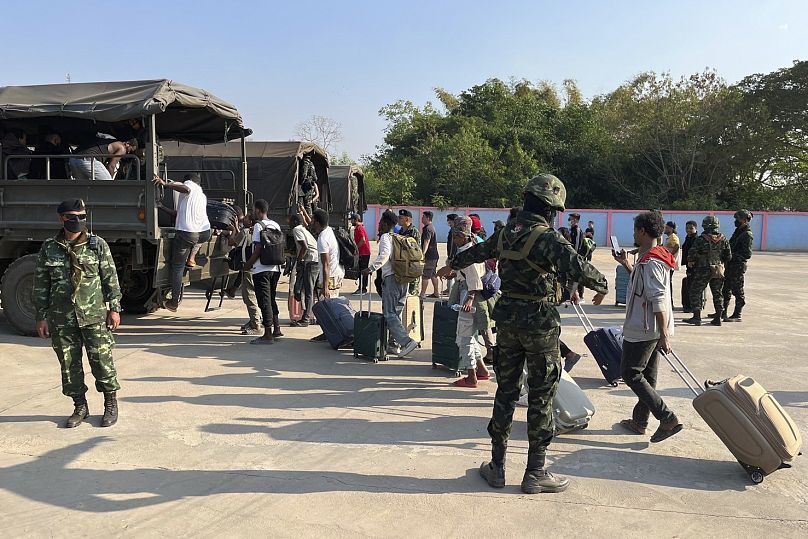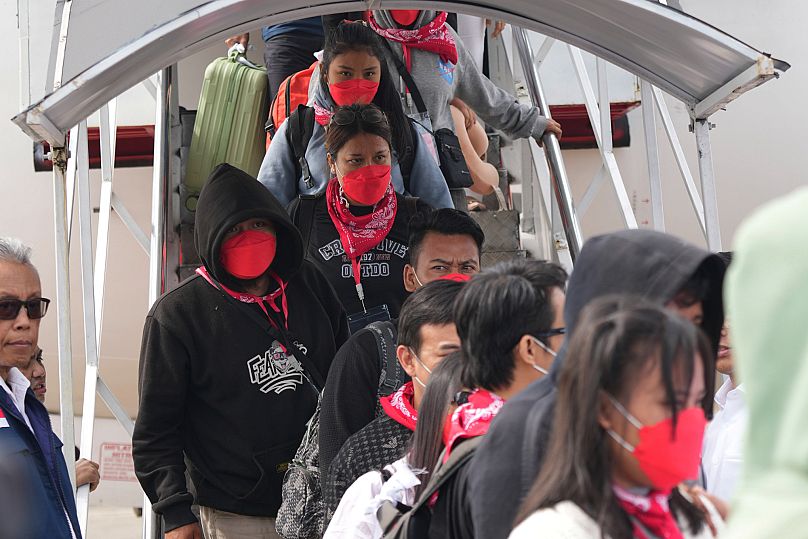New online markets, money laundering networks, stolen data products, malware, artificial intelligence and deepfake technologies are laying the ground for the rise of crime as a service, the UN report says.
Transnational organised crime groups in East and Southeast Asia are spreading their lucrative scam operations across the globe in response to increased crackdowns by authorities, according to a UN report issued on Monday.
For several years, scam compounds have proliferated in Southeast Asia, especially in the border areas of Cambodia, Laos and Myanmar, as well as in the Philippines, with scammers shifting operations from site to site to stay one step ahead of the police.
More recently, scam centres that have cheated victims out of billions of dollars through false romantic ploys, bogus investment pitches and illegal gambling schemes are now being reported operating as far afield as Africa and Latin America.
Asian crime syndicates have been expanding operations deeper into remote areas with lax law enforcement that are vulnerable to the influx, according to the report issued by the UN Office on Drugs and Crime (UNDOC).
"This reflects both a natural expansion as the industry grows and seeks new ways and places to do business, but also a hedging against future risks should disruption continue and intensify in Southeast Asia," Benedikt Hofmann, UNODC's acting regional representative for Southeast Asia and the Pacific, said in a statement.
UNODC estimates that hundreds of industrial-scale scam centres generate just under $40 billion (€35 billion) in annual profits.
The trend to hedge beyond the region has been consistent with continued reports of crackdowns targeting Asian-led scam centres that have been found operating in Africa, South Asia, the Middle East and select Pacific islands, as well as related money laundering, people trafficking and recruitment services discovered in Europe, North America and South America.
In Africa, Nigeria has become a hot spot, with police raids in late 2024 and early 2025 leading to many arrests, including people from East and Southeast Asia suspected of cryptocurrency and romance scams.
Zambia and Angola have also busted Asian-linked cyberfraud operations.
In Latin America, the report says that it's "notable that Brazil has emerged as one country that has faced a growing set of challenges related to cyber-enabled fraud, online gambling and related money laundering, with some linkages to criminal groups operating in Southeast Asia."
It also notes that in late 2023 in Peru, more than 40 Malaysians were rescued after being trafficked by a Taiwan-based gang known as the Red Dragon syndicate that forced them to commit cyber-enabled fraud.
The report also points to crackdowns on Asian-led scam centres in the Middle East and some Pacific islands.
Alarmingly, even as Asian-led groups have been expanding the geographical scope of their operations, the involvement of criminal groups from other parts of the world is also growing, the report says.
New online markets, money laundering networks, stolen data products, malware, artificial intelligence and deepfake technologies are laying the ground for the rise of crime as a service, the report says.
These technological innovations facilitate conducting their businesses online and adapt to crackdowns.
"The convergence between the acceleration and professionalization of these operations on the one hand and their geographical expansion into new parts of the region and beyond on the other translates into a new intensity in the industry — one that governments need to be prepared to respond to," Hofmann says.













